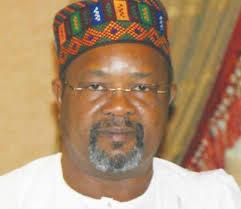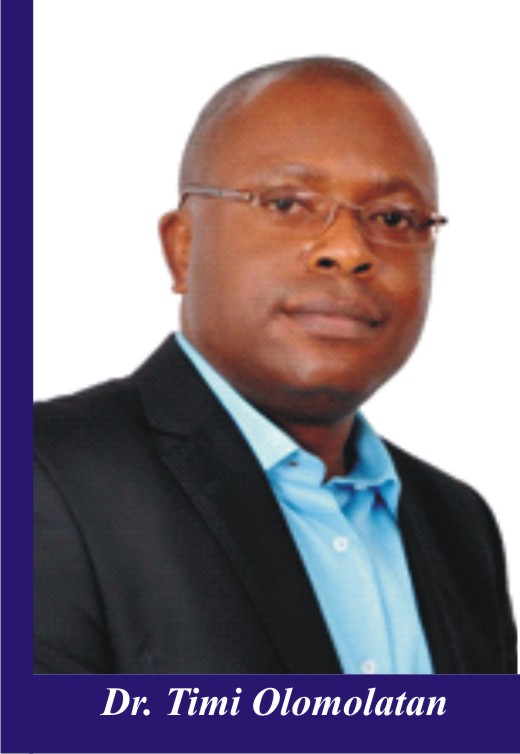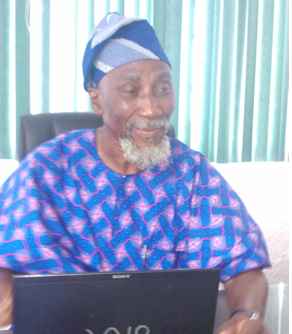A Search For Good Leadership In Transport Sector
By Kingsley Anaroke,
Kenneth Jukpor & Moyosola Okuneye
“The best way to predict the future is to create it.”Abraham Lincoln.
The above expression could stir the mind in different directions in relation to one’s level of understanding. But when juxtaposed against Nigeria and its leadership challenges one begins to ponder on why we can’t create the future we can predict.
One is often left in a state of perplexity after reading through the concepts and meaning of leadership and its contrasting realities in this clime. To help appreciate this tide of reasoning, Leadership in one definition is a process whereby an individual influences a group of individuals to achieve a common goal. A Leader therefore is a person amongst others who possesses the combination of personality and leadership skills that make others want to follow his or her directions. Not just follow but follow for transformative effect!
Can we then conclude for sure that we don’t have true leaders now and have had no leaders in the past in Nigeria? The national leadership hemorrhage has permeated all sectors of the economy, and this explains the state of “Things Fall Apart” seemingly hopelessly.
Every sector of the economy is under painful menstruation, a circle that off-handedly requires palliative rather than curative measures. That is where our leadership, bereft of vision has stationed the bus of our destiny as a people. The vision-lessness, over the years, has produced too many “Short- time” Leaders.
No wonder the transport sector is saturated with palliative measures. Not even the railway adjudged as the flagship project of this regime is done without palliatives. The maritime or the port subsector is synonymous with short-time; the air is not different and how can the land mode be described? Fix it up! The Pipeline mode is completely extinct, with a popular joke that any mirage can only be found in a pipeline, which is a corrupt interpretation of the popularly used expression as “Water or electricity is in the pipeline,” noted with the “Leaders.’
It is this bad, with wailings and lamentations from investors, business owners, employers of labour, among others.
But the big surprise is that the followers seem to be always scared to say the truth before their perceived oppressors called leaders. Their tongues are often tucked in hypocrisy. This scenario played out recently in the maritime industry. Details of this shall be served next week.
However, the followers sure have bigger roles to play than the leaders. They have to hold the leaders accountable. They must be performance and impact assessment for leaders because when a leadership fails it affects lives, destinies, visions and generations.
To awaken this consciousness in the transport sector, Quarterly MMS Transport Agencies’ Performance Rating the Transport Leadership Lecture as well as the accompanying awards were introduced. It is a wake- up call for the government agencies or Ministries, Department and Agencies(MDAs) in transportation sector and other sectors.
The second edition of this lecture took place on July 30th, 2019 at Golden Gate Restaurant, Ikoyi, Lagos. It brought stakeholders from the various modes of transport together to chart a leadership cause and course for the industry. In this Special Report are the voices and emotions against bad leadership in the transport sector. It is a genuine search for good leadership. Enjoy the reading.
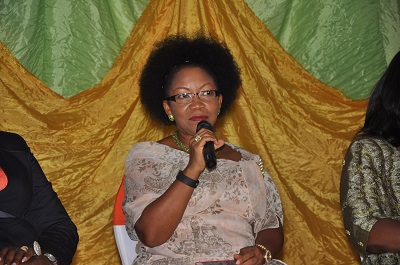
Mrs. Mfon Usoro is the Secretary General of Abuja Memorandum of Understanding(MoU) on Port State Control in West and Central Africa. She was the Guest Lecturer at the 2nd Transport Leadership Lecture.
We should look at the index that qualifies a nation to become a major maritime nation. I’m zeroing down to maritime because that is my primary area of specialization. These key areas in the maritime business include; shipping, maritime finance and maritime law, maritime technology in ports and logistics and the area of seafarers. Nor Shipping categorizes countries based on these four areas. Some countries have emerged to be the top in the world using these four indexes. China has emerged as the number one shipping country because it scores high in all categories. China is leading under shipping, Singapore is leading in the area of maritime logistics, New York, China and Hong Kong are leading in the areas of maritime finance and maritime law, while South Korea is leading in terms of maritime technology because of their shipyards. When you look at Africa, which of these sectors does Nigeria want to lead? We have to find out where we have the competitive advantage so that we can direct our resources towards that specific area and emerge as the leading country in Africa. Now, more than ever before, the race has begun with the African Continental Free Trade Agreement (AfCFTA). It is the countries that distinguish themselves in those areas that would have the most advantage. Those whose only criteria is that they have the largest market might just wake up to find that they are being exploited by those who are smart and known internationally as being good in these areas.
When you look at one of the subsectors being shipping in this classification, shipping includes, the fleet size or advancement of the fleet, the owner countries of these ships. For instance, you might have several ships flagged Nigeria but Nigeria may not be the country of the owners. So, when we are ranking we also look at the beneficial interest of the flagged country and it also covers the value of the ship itself. A nation could have several small ships but it can’t be compared to a country with 100,000 tonnes vessels even if the country has only two. Another issue is how compliant is Nigeria to International Maritime Organization (IMO) conventions or regulations and where is the nation in the IMO Council or any of the Committees? All of that falls into the shipping category.
The other category is maritime finance and maritime law and it includes, the legal expertise, maritime insurance, loans, shipping portfolio, transparency and corruption, market sophistication and the stock exchange size.
We can begin to think about this and what we are trying to do in Nigeria. How is the Nigerian finance system structured? All over Africa, how do we structure our finance institutions to support the sector by way of credit guarantees that other sectors are afforded? How many shipping business have been floated in the stock exchange? How are loans for the sector structured and how do they compare to those in other countries? In other climes maritime loans are at single digit interest, how did they achieve that?
Another category is maritime technology; it covers shipyards, marine supply, research and development which Singapore and South Korea are leading. It also covers the Information Communication Technology (ICT) index. This encourages a nation to improve its service delivery in both the demand and supply sector. We know that there is dearth of shipyards in Africa generally. The foremost one is the Damen Shipping Yard in South Africa and I’m not aware of anyone in West Africa that can be compared to Damen. Why shouldn’t there be a major shipping yard in the West and Central African sub-region? Who is best positioned to beat the other nations so that it takes advantage of this missing facility?
Another criterion is ports and logistics and it covers port handling, the number or TEUs handled, port regulations and the level of technology, ports interconnectivity index, logistics performance index, among others. We have centralized ports system and those who have decentralized ports system whereby all the ports are decentralized and are in competition with each other. This competition ensures that the various ports are motivated to improve their infrastructure and services to attract the interest of shippers. Meanwhile, in a centralized ports system, everything is under one authority and there is no motivation to be the best. These are some of the things that African countries need to learn to model after the best.
We have the other category of seafarers where the Philippines always lead. One or two African countries could decide to be the Philippine in Africa to supply maritime manpower to other vessels that ply the waters. Some of us are lobbying for Nigeria because we have a large and youthful population. This can be a key economic factor or growth area in Nigeria to develop the excess population that we have to be a supplier of maritime labour to the world.
No country can become a leader in maritime if it cannot project that it has the advantage in any of these areas. That is why it is important to liberalize the people who go on conventions abroad. Most times, we go on such global meetings but end up speaking to ourselves as we don’t project those professionals that would have enriched the delegation. It is important for the world to see that we have this level of expertise which would raise the dyke for the country.
One of the models that work internationally is for industries, governments and agencies not to work in isolation. There has to be harmony, and a holistic approach for us to achieve the set targets. The people of the country must also be aware of what the set target is so that everybody can have a buy in. in this approach; it is everybody’s business to work towards achieving those identified goals. The government and the industry must work together to gather and direct human and capital resources towards the achievement of the goals. Countries that have recognized the importance of leadership which is to motivate people and gather the right skills have been able to work towards the actualization of a particular goal. We can make it and we can work towards the AfCFTA which is a positive development, but for us to make it beneficial, every sector has to sit up to take advantage of what we have and what we can do so that we don’t cry in future.
Nigerian Ports Not Built For Export–Bello
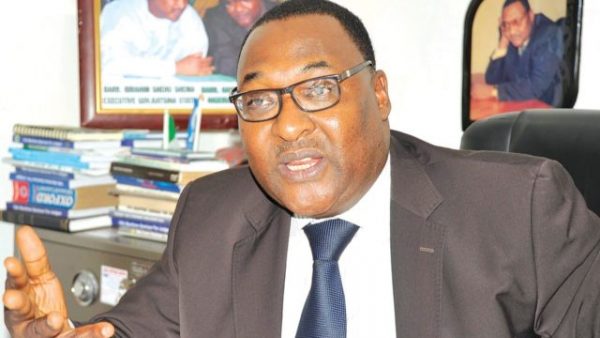
Mr. Hassan Bello is the Executive Secretary of Nigerian Shippers’ Council(NSC). His goodwill message is insightful.
Cargo is now transported to Kaduna Dry Port on weekly basis. There are challenges but I’m sure that a stakeholder like Princess Vicky Haastrup would be happy to hear that.
Shipping is coming to the hinterland, we are going to sign Ibadan Dry port in August, 500 million Dollar facility which is going to be modern and we have to make it distinct to remove what is happening at the seaport. We are also seeing the challenges in the seaport, we have seen efficiency, we have already started winning the war because we are getting cargo from our competitors. Of course, we have problem of interconnectivity which is being solved now. When one goes to Apapa, I guess he will see that the chaos has been reduced drastically and that means that the government is poised to make a difference. By the time the infrastructure deficit around Apapa is mitigated, Creek Road, Liverpool Road, will wear a semblance of order. So, we are already having short, medium and long term solution and I will not but thank the Lagos State government for their positive response to what is happening in Apapa because it is also affecting what is happening in Lagos and even beyond.
Shippers’ Council has also met with the government and told them that you have no right to give concession to a RORO terminal and then in the middle of business, change the policy of importation, it is not right and we have told them so and we have reasons to reduce the guaranteed minimum tonnage of one terminal because the conditions for its operation were just not there. What we did was equilibrium, we need fair playing field for everybody and that was why the Shippers’ Council was the first to oppose the so called Oil and Gas monopoly in some ports and we said that Oil and Gas cargo is not known to concession agreement and that was why we called for an opening of this concession agreement.
I am aware that concession agreement is being renegotiated but it can never be a closed thing. The concession agreement is for Nigerians, we have to participate in that otherwise, it will still be the one sided thing we have seen. Where is the interest of cargo? Where is the interest of export? Nigerian ports are not configured for export. So, we have to operate an open society, we have to bring these things out, it is not going to be elitist thing.
Now, when we wanted to open a modern truck transit park, the first people we contacted were the National Union of Road Transport Workers(NURTW) because they know where they park and we took them round the country and they will say, Oga this is a good place. Can you imagine if we have constructed all these parks and the drivers will say we are not going there? You have to consult. Consultation, synergy, inter-agency cooperation is extremely important in this industry.
The war risk clause has been slammed on Nigeria and we have talked very much about that. The journalists amongst us would be the people who sometimes give rise to the false impression of what is happening on our waters. We have to be educated on what is happening with regards to the incidents at sea, whether armed robbery or misdemeanor which shouldn’t be seen as piracy. Nigerian authorities aren’t consulted before these charges are introduced. We don’t know the procedures and these charges ought to be temporary.
We have to come together and challenge this because coming to Nigeria is not just right with the cost, the cost is escalating and that is why the Nigerian Shippers’ Council has invited about six African countries, it has invited the Global Shippers’ Forum to come to Nigeria to look at this extra cost even the local shipping charges, we have to look at them and see that we are competitors. The more cargo we have the better, these charges must be competitive. There is a scientific way of reaching agreement so that we will be competitive with other ports.
We also have to look at the local charges and review to ensure that we are competitive. The more cargoes we have, the better, but we must reach an agreement so that we can be competitive with other ports. I know there is somebody in Lloyds who does nothing but to monitor coastlines in Nigeria about pirates and that is what will determine the war risk. Nigeria cargo owners are not consulted, the Nigerian authorities are not consulted, and we don’t know the premium. Well, these surcharges are supposed to be even temporary and they disappear with the situation but we still have currency factor adjustment, we still have bunker adjustment as surcharges, whether the cost of bunker is up or down, it doesn’t matter to them.
We have to reform the trucking system, we have to reform the cargo clearing, dwell time of cargo is below the regional average in Nigeria but then, we have to also represent the terminal operators as well as the shipping companies. We have to tell the government the truth that there are deficit in infrastructure and government has to create conducive atmosphere because the operating atmosphere is a little bit harsh.
“ Everybody Needs To Be Participant In ‘Maritime Nigeria’”
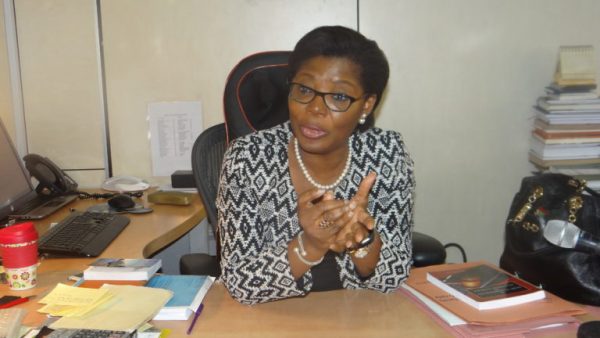
Funke Agbor, SAN is a Senior Partner in Adepetun Caxton-Martins Agbor & Segun was a participant at the Lecture.
The lecture has alluded to the fact that there should be a convergence of maritime administrators in this country. Everybody knows what they are supposed to do in the maritime sector, but does everybody know what Nigeria is supposed to do in the maritime sector? It is so sad that the nation doesn’t have a comprehensive and compact goal. Nigeria is still where it is with regards to development in maritime sector because we have been having the same discussions in the past thirty years. We have been saying the same thing at different fora since 1987.
Can we encourage the administrators and regulatory authorities in the industry to utilize the much deliberated issues as basis for a super summit and agree on what the nation should be doing in the maritime sector?
This isn’t about what the various maritime agencies should be doing, but what everybody should be doing collectively because we need to work together. It is one thing to have Ministerial synergy but you can’t have it just in the Ministry. Everybody needs to be a participant in this project of ‘Maritime Nigeria’.
There has to be a Maritime Nigeria, we need to bring it forth. This is what we should be talking about; it is what we should agree to be done today. These talks cannot end here in this conference; otherwise I will not come back next year to say the same thing that we have said over the years.
We Must Know Our Strength As A Nation–Egesi
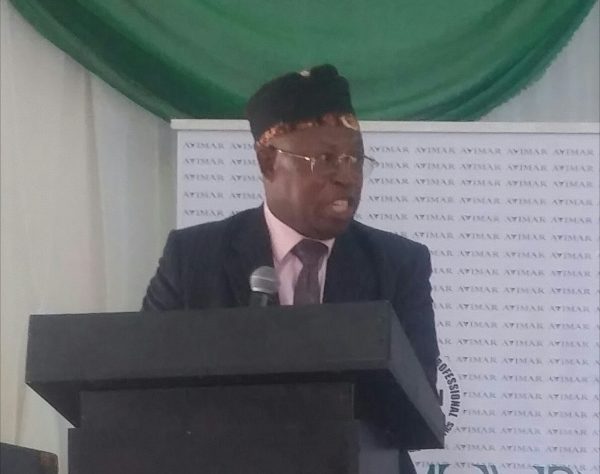
Mr. John Egesi is a former Director-General of National Maritime Authority(NMA), who also moderated a session at the Lecture.
It is always good to talk about things that should have been done. Anyone who lived before the 1990s would realize that the problems in the maritime industry persist because it hasn’t been nipped in the bud. The problem of the Nigerian maritime industry is the cargo and the structure of the cargoes. When I was the Director, Operations at the National Maritime Authority (NMA) we realized that we couldn’t lay claim to foreign cargoes or dictate the claims. So, we started what gave rise to the Cabotage. We decided to channel our energy to the cargoes we had control over. We can have as many meetings as possible, but until we correct the structure of trade through production of what Mrs. Usoro talked about which is the value of the cargo.
You can carry cargoes without value but what makes a nation great is the value of the cargoes it generates. What makes Singapore and China great is the value of the cargoes they generate. It is the value of the cargoes that leave the port of a nation via export that makes it great. What cargo does Nigeria have? What is the value of these cargoes? Until that structure is corrected, we would keep talking about the same problems. There is no way to make this issue nice; Nigeria has to prioritize the value of its cargoes.
Nigeria should ensure that it produces good and quality goods at least for the sub-region. We aren’t concentrating on the key issues that we ought to. This problem isn’t a legal or policy problem but an economic one. It is a problem that is based on what we produce. If a nation produces nothing, then there is nothing to carry. If the cargo is in London, if you increase the value of the cargo London benefits and the person who wants to carry the cargo must be a ship or taxi nearby. So, availability of quality cargoes would lead to a better shipping industry and other services like insurance, banking, among others will benefit. That’s how it works.
Some people accused NMA of not giving them cargoes to carry but the problem of the nation is its production sector. The nation has to ask itself the question Japan asked at the end of the war – what are we going to be producing? When you produce the cargoes, ships would beg you to carry it.
Another area Nigeria can leverage on is the aspect of ports, we must know our strength. The eagle takes the battle to its height and area of strength. Since we don’t have ships or valuable cargoes, we should have ports that compete very well. We shouldn’t have government condemned ports, but ports that should be in collaboration with foreigners or private experts. We must take away the issue of corruption. The problem of government ports is that the government appoints those who are going to be there. If it is a private port, the operators want to make profit. So, the drive for profit leads to a symbiotic system that ensures that each party makes profit by coming to the port. Hence, there would be need for quick turnaround time and efficiency. If we can’t immediately get ships, let us get good ports that people would visit and give us money for.
We must love Nigeria, because another problem is that we don’t love the country. I had a staff when I was Director General that so disliked me but when we had a problem that required someone to fly to America to resolve. I sent him there and received boos for sending someone who didn’t like me to America, but I sent him because I knew that he was the only one who could do the jobs. Take away emotions and put the country first and the right people in the right positions so that the country would grow.
Govt. Is Not Paying Attention To Its Revenue Source–Haastrup
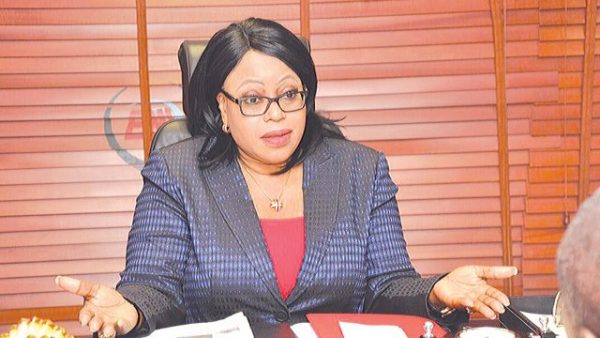
Princess Vicky Haastrup is the Vice Chairman of ENL Consortium Limited, one of the Nigerian Port’s concessionaires in Apapa port, Lagos. She went frankly emotional in her intervention as a panelist at the lecture.
It brings me to my tears, when I see what is happening in the industry. The federal government is busy taxing us and some weeks ago, it put a restriction on my account because they are looking for money. The federal government didn’t have a reason to put a restriction on the account. I audited the account and I pay my tax. They had to remove that restriction because I fought. Government is talking about generating revenue but they are not paying attention to where they generate huge revenue. It makes me really sad for this country. I want to put the blame on the government and the leadership. The problem of this country is that of leadership. If we have right leadership, the right policies will apply in every sector of the Nigeria’s economy. We are talking about optimizing digitization and connectivity in the transport sector, do we have this in Nigeria? We don’t! Look at what the Apapa and Tin Can Island ports which were once among the biggest ports in the world, today, they have become something else. Shouldn’t we be crying as a nation?
It is a national disgrace to all of us and the federal government of Nigeria that the port environment and the access to ports have been abandoned for so long. I am not just blaming this current government but they are also part of the problem because they should have looked for a solution in five years. It is a problem that has been there for a very long time.
The gateway to the Nigerian economy has been abandoned and everything is in total disarray. For example, I can say that my company, ENL Consortium is suffering as a result of lack of an enabling environment that isn’t there. A company imported some goods since 2017 and dumped it in ENL terminal. For a whole year, we suffered so much that we couldn’t take ships anymore. We run ten berths, but in a month, I could hardly take two ships. Is that not a shame?
A ship could be coming from China or Europe but you can never be sure of when the ship would be discharged. We all know that time is of essence to the ship. Do you know what this has caused for importers and charterers? It is a national disgrace. People have been taken all over the word to see how the business is done. In Singapore, right from the control room, ships are being discharged and you do not see any human being around. That is digitization and automation. Can we do that in Nigeria? Who will allow it? In other ports around the world, you can sit in your house and go on the internet to see what is happening to your cargo. You do not have to leave your house to go the port. It is high time we fought for these things and make them happen in our ports. We are talking about generating billions and yet, the federal government is not paying attention to the maritime sector. The Customs Commands in Apapa and Tin Can alone rake in billions monthly, yet this doesn’t send enough signals for the government to address the port access roads.
Look at the Ports and Harbours bill, National Transport Commission bill, they failed. When the terminal operators took over the Nigerian ports in 2006, they told us that the Ports and Harbours bill will be passed within a year. It’s almost 14 years now and the bill is yet to be passed. I have gone to the National Assembly several times and I don’t want to talk about what happened.
The problem of this country is that people are more concerned about self interest rather than national interest. Nobody is thinking about the young graduates that don’t have jobs, but they will think about their own interest. That is what happens to people in positions of leadership like ministers, legislature and all of us present here. We are all contributors to the problem of Nigeria.
Optimizing digitization, where is the rail service? I think Rotimi Amaechi has done a lot in terms of that. If we had started a long time ago, some of these problems would have been addressed a long time ago. We need to make use of barges, good roads and the rail. We need to ask government questions, it’s not just enough for us to talk. Maybe we need to match into the Aso Villa and tell them that we need attention in the maritime industry. We have spoken several times and the speeches have made no changes. No one does the follow up after the fine speeches, so we need to act and we need to make it happen by power or fire.
No Rule Of Engagement In Transport Industry-Ndibe
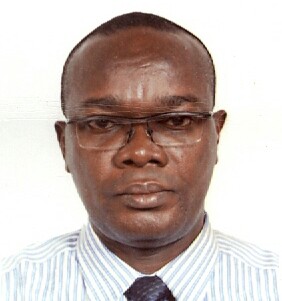
Mr. Paul Ndibe is the Director-General of Certified Institute of Logistics and Transport(CILT) Nigeria and Railway management expert .
There seems to be an absence of the rule of engagement in the transport industry. One of the elements that we need to examine is to identify building blocks that will enable development. There is also the need for capacity building and professional education. Beyond the maritime sector where NIMASA is doing a lot with seafarers development, there is still a dearth of professionalism in the road and rail sectors. There is the absence of professional education between operators in the sector.
We need to increase what we produce and add value to them. If we cannot compete with the American products, what about the African products? We need to focus more on agriculture. We have to make these arguments where they can be heard. We must allow the private sector to be fully involved in reshaping the economy. We are no longer thinking of the required direct foreign investments anymore, but if they must come, there has to be an enabling environment.
Intermodalism is also a very important issue. Transportation can’t be efficient unless there is intermodalism where all modes of transportation complement one another.
The policy framework has to also be there and this has to be done by the government. We have talked about the Ports and Harbours bill and the National Transport Commission, they have the ability to transform the transport sector, but they have been abandoned. The infrastructure across the sector has to be improved and it doesn’t always have to be Nigerian money, we could approach the African Development Bank which has funds for such projects. All these issues must be articulated and presented to the government through a forum that they will listen and they will be able to take action on it.
‘Private Sector Must Take Leadership Of The Industry’
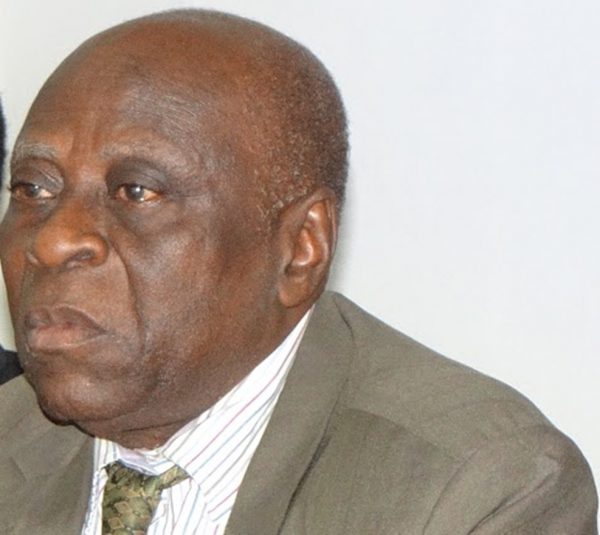
Otunba Kunle Folarin is the Chairman of Nigerian Ports Consultative Council(NPCC). He moderated one of the sessions.
The theme of the event is on leadership but we don’t have to concentrate on leadership from the government side. We are not looking at the private side. Leadership involves everybody in the transport sector. One of the issues we should look at is setting the role and agenda for the private sector.
It is upsetting to note that aviation sector is getting all the incentives they need while the shipping sector is crying out for similar incentives. Only few weeks ago, the Comptroller-General of Customs stressed that ships and its spare parts must pay taxes but we have just learnt that aircrafts and its spare parts have zero Customs duty. On this note, I would say that the leadership in the private sector would be key to getting what we want.
We have to look at setting the agenda for the private sector. The private sector must set the agenda themselves and take leadership of the maritime sector. If we believe that there must be incentives for investments to thrive, we must come together and look at the models that other sectors and other countries have utilized. We shouldn’t wait for the government before we address these issues. I listened to the emotions that poured out today but I will state sadly that these emotions would continue to pour. The organizers of this event should focus on making leadership evident in this sector. How do we get the existing polices in the industry implemented?
Mrs. Funke Agbor raised the idea of convergence in the industry but there would be no convergence in this industry because of politics. However, we can set the agenda ourselves and develop that agenda until it achieves the desired results. If we decide to wait for incentives from the government, policy implementation and other crucial decisions from the government, then we would continuously wait without assurance of any results.
‘Leaders Must Make Impact, Not Warm Seats’
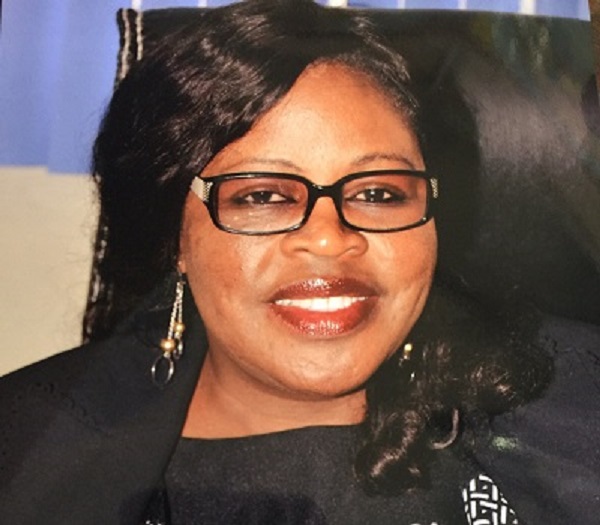
Mrs. Mary Hamman is the President of Women’s International Shipping and Trading Association(WISTA) Nigeria.
On behalf of the women in the maritime industry, especially the women in shipping, we need a balance for better positive changes. It cannot be one sided, the women also have a lot to offer in the industry. We have all it takes to do whatever anybody can do. Once that balance is struck, we will see the next level of leadership. We are talking of leaders that are about to make impact and not just occupy seats. When we focus on what we want and we are positive about it, we will see changes in the maritime industry. It takes all of us to have our hands on deck, it shouldn’t just be one –sided.
With the crop of leaders we have in place now that are out to score some points, women are not just there to occupy space. We can see what women are doing in the leadership of NIMASA, Shippers’ Council and the exemplary woman at the helm of NPA.
I’m not going into details in those areas but when we focus on what we want and we are positive about it, definitely we will see changes in the maritime industry. This means all hands must be on deck, it cannot be left to one set of people, women must be involved.
How Maritime Stakeholders Compound The Industry Woes – Nwagbara
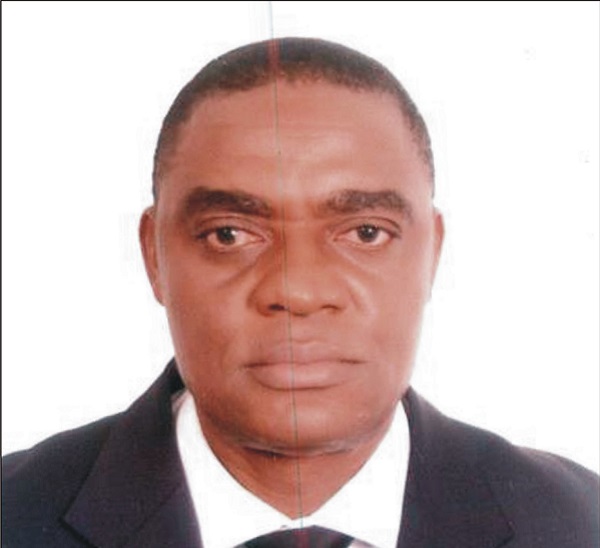
Barr. Emmanuel Nwagbara is a veteran maritime lawyer. He spoke to MMS Plus newspaper last week during the 2019 MMS Transport Leadership lecture and awards. Nwagbara reveals how maritime stakeholders have compounded the industry’s woes, explains the ideal environment that supports digitalization in transportation, appraises the nation’s plan to get delisted from the War Risk zone, among others. Read on!
One of the panel discussion was on digitalization and connectivity in the transport sector. How would rate this in the nation, especially the maritime sub-sector?
There must be a definite policy for maritime; talking about policies we have a pyramid with the Transport Ministry as the apex decision making body for the country. The policy comes down to the various MDAs in the sector. Digitalization is about integration of the various MDAs with a view to facilitating trade in the maritime industry. We lack this policy direction because we have not been fortunate to have a technocrat at the helm of affairs in the Ministry of transportation. Who is to blame for this problem? It is the stakeholders in the industry that should be responsible. At this point, I want to commend the maritime journalists who are not afraid to report the shortcomings in the industry. I blame the stakeholders because from my experience the Minister of Transport is the most hosted of all the Ministers in the Federal Republic of Nigeria. From the time the Minister is appointed he is hosted by various categories of stakeholders and all he hears are encomiums. So, the Minister isn’t aware that he isn’t performing because people are afraid to tell him the truth. This is part of the problem because the Minister would actually begin to think that he is performing until he leaves office and starts seeing criticisms.
Stakeholders can come up with a publication in a renowned medium like MMS Plus demanding that the industry needs a technocrat to drive the Ministry of Transportation and give meaning and focus to the maritime industry. Everybody here is talking about the failures in the industry and we have all agreed that we should blame the government. Who is the government? The government is a representative of the entire people of Nigeria, from the policy makers down to those affected by these policies. We are all government people.
Interconnectivity and digitalization wouldn’t be actualized in an environment where people operate on different fronts. We have the Single Window, designed and operated by Nigerian Ports Authority (NPA), another Single Window operated by Nigerian Customs Service (NCS) and another by Nigerian Shippers’ Council (NSC). This shouldn’t happen in an ideal environment. We should have a Single Window that is administered by one of the agencies where all the other agencies would be connected. That is what digitalization is all about. At the different ministerial levels, digitalization cannot work for the electronic truck call-up system without the basic infrastructure.
You had someone speak here that Lilypond doesn’t have power supply. There’s no electricity connection to the Lilypond Truck Park so how would it function when you evolve to an electronic truck call-up system?
What I’m saying is that we missed an opportunity here at this conference because the Chairman didn’t allow intervention from the audience during the discussion on digitalization and connectivity in the maritime industry.
I wanted to move a motion that this forum of maritime stakeholders want a Minister that is a technocrat in the maritime sector. It doesn’t matter if a Minister who isn’t a technocrat has already been appointed; we could designate someone for that purpose. Amaechi tried to improve the railway but he didn’t do much to improve the maritime industry. If he comes back, we wish him goodluck but we want him to do more for the maritime industry. The maritime industry is like a weeping child that needs to be consoled in the transportation sector in Nigeria. There are so many gaps and deficiencies.
What are the opportunities for the nation’s maritime sector with AfCFTA?
Nigeria cannot take advantage of the African Continental Free Trade Agreement (AfCFTA) when the maritime transportation isn’t captured in that agreement. It is that bad. I understand that maritime transportation wasn’t captured in that agreement.
Nigeria also lacks the basic infrastructure that would enable us maximize the potentials of that agreement.
As small as Equatorial Guinea is, Malabor is a place where ships go for dry docking at very competitive rates and within a short time. As big as Nigeria is and with all the resources at its disposal, we do not have viable dockyards that can take vessels of 30,000 metric tonnes and above. It is a big shame when you consider that Nigeria is planning to be a hub. This is just a pipe dream.
Nigeria must angle to take its rightful position in the West African sub-region. If Equatorial Guinea can have this advantage of drydocking vessels of 30,000 tonnes, I don’t see why Nigeria should not.
What about the NIMASA floating dockyard?
The NIMASA floating dock is only for small and medium sized vessels and it isn’t even functioning. So, Nigeria must put the infrastructure in place and find an area to fit in. Within the African region, Nigeria must calve a niche in shipping. We have the population to key into seafaring and produce for Africa and the entire world. We have the seas, rivers and waters. We can choose to establish a hub for drydocking in Nigeria. We can establish a hub for ship building. Nigeria needs to wake up but I blame the stakeholders because we haven’t been able to speak truth to power. We have always played the ostrich. We eulogize the Minister when he is around, then turn around and criticize him when he leaves office. I’m happy that a former Director General at NIMASA, Barr. Temisan Omatseye could admit that while he was in the office he didn’t quite understand the system. That apology is received well but we have to correct this by getting technocrats to assume positions of authority in the MDAs to drive the changes.
The issue of war risk insurance has become a burden on Nigeria and Shippers’ Council is set to the lead the campaign against this. How do we go about it?
The campaign is a sentimental thing. I have had clients who have lost ships to pirates. You have to experience this if you intend to drive any campaign. The advocacy must be backed by practicality of what is on ground. The illegality on the Nigerian waters isn’t in doubt. People say that things aren’t working and point at the Extra War Risk Insurance as the reason they encountered losses but I have clients who have raised money to buy vessels but they cannot get a job.
They can’t get jobs because most of the businesses on Nigerian waters are illegal trading. So, when people shout that the Cabotage Vessel Financing Fund (CVFF) has been held unnecessarily, when it is released those willing to take the risk of obtaining the loan may not be able to pay back because they may not get the jobs. I have people who have state-of-the-art vessels but they can’t secure jobs because of the insecurity on our waters. Insecurity is piracy, armed robbery, among other sharp practices and these practices take place on our waters.
When you have a lot of illegality on the waters, the people that engage in these unlawful activities like transporting illegal crude and doing illegal bunkering turn into piracy when there are no illegal businesses to do. They highjack trawlers and ships and these are some of the challenges militating against shipping business in Nigeria. When you talk of the campaign against the classification of the Gulf of Guinea that gave rise to the Extra War Risk Insurance, you have to ensure that these things do not exist.
From Mr. Hassan Bello’s comment today, one can deduce that Nigerian Shippers’ Council (NSC) hasn’t been part of the ongoing port concession agreement review. NSC is the nation’s port economic regulator, so is this review arrangement appropriate?
That has been part of the problem and it was also highlighted during the conference. Government excludes stakeholders in the development of policies and problems arise when it is time to implement.
Among the MDAs in the Ministry of Transportation, the fact that Shippers’ Council is now the port economic regulator isn’t known to them. I have had to look at some regulations that were made after Shippers’ Council became the port economic regulator and I found that the Council was excluded in those regulations. I keep wondering how they excluded such an important MDA in the maritime industry.
You can’t do such amendment without the input of stakeholders and particularly the input of a crucial regulator that is the port economic regulator of the maritime industry. Those who are doing that are doing the wrong thing and they should change otherwise there would be glaring challenges in the concession amendment and the implementation would be difficult, if not impossible.
We Have A Govt Of Palliative–Folake
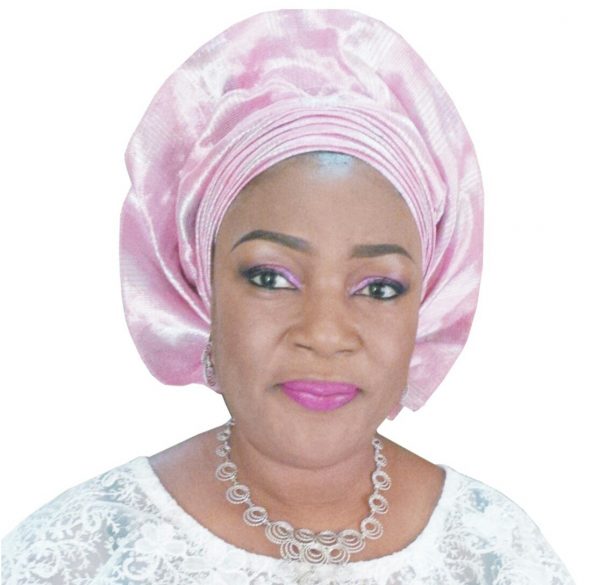
Folake Soji-George is the Chair Person of Corporate Truck Fleet Owners’ Association. She is spoke as a panelist.
The problems in Apapa are known all over Nigeria and they have streamlined it to truck owners by saying that they are undisciplined and they can’t control their members. It is not just limited to those that are involved in carrying of cargoes and containers. We have those that carry wet cargo as well.
In the past when Nigeria was well regulated, before you could carry wet cargo, there were certain conditions that you had to meet. We have issues of wet cargo trucks falling and causing fire outbreak. For us in the dry cargo sector, we have the issue of total collapse of infrastructure. We cannot have any road to ourselves in the port to carry the cargo and they look at us and say we are charging a lot of money.
Nobody is thinking about the turn around, the time it takes to enter the port, the time it takes to get out of the port and the time to finish the service. I know the fight that we had with the government before Apapa Wharf road construction was done. All thanks to the former General Manager, Apapa Western Port. We suggested to him that he should meet the multinationals to fix the road as their Corporate Social Responsibility and that was how the construction of the road was done.
While that was done, government gave us their word that Tin Can axis has been contracted and up until today, what we have on Tin Can axis has been palliative today, palliative tomorrow. What we have majorly in Nigeria is that those at the helm of affairs are paying lip service to major problems. They pay lip service to this sector because they don’t know what it takes to have an efficient business sector.
We know that Lilypond terminal has been given to truck containers and that is where they are going to use for the electronic truck call up system in August or September. Right now as I am talking to you, Lilipond terminal has no light and I don’t know how the electronic call up system will come up there.
Individually we have taken our fight ourselves because it was one of the terminals; that we had government come in and the Managing Director of the Nigerian Ports Authority (NPA) Ms. Hadiza Bala-Usman really took her time to make sure that Apapa Wharf road was done. If Tin Can is not done and we want to compete with African nations and the other parts of the world, then I don’t know what we want to do.
My take is that we would not stop talking. I know Otunba Folarin has been talking for ages. We wouldn’t get tired until when government will look into our problems in the maritime sector. I want to say that we feel shortchanged and it’s because the government does not understand how significant we are to the economy. If they understand who we are and if we project ourselves rightly to the economy, we will have a better industry.
“Private Airlines Pay Zero Customs Duty”
Group Captain John Ojikutu (Rtd) is the CEO of Centurion Aviation Security and Safety Consult.
There is nothing that I have heard today that tells me about compliance in the maritime sector. International Maritime Organisation (IMO) is supposed to be an international organization just like we have International Civil Aviation Organization (ICAO). They are supposed to visit every country to ensure that there is compliance. We have seaports and we also have airports. We have Nigerian Civil Aviation Authority (NCAA) just like we have Nigerian Maritime Administration and Safety Agency (NIMASA). It is the responsibility of the regulatory authority to ensure that there is compliance. There are so many agencies in one sector, so there will be crisis.
You have to hold these regulatory agencies responsible to also do that as an individual. There is nothing that happens in the aviation industry that I do not know. Please don’t talk about government, talk about the individuals. The government of Nigeria collapsed in 1966 as far as I’m concerned, so you have to hold the individuals that are there responsible. Nothing stops you from knocking at the door of the minister. I do that always. You can get their phone numbers and send messages to them. I don’t want to hear anything about government doing this or that, it is an individual thing. I call it unilateral exploitation of the Nigerian policies.
The cargoes might not be there because we have to be exporting and that is why I am afraid of the African Continental Free Trade Area (AfCFTA). We don’t have anything to take out of the country, yet we have a lot to bring into the country. Another thing we have to do is to counter most of the things that are coming in so that we can increase our cargoes.
Everybody is blaming the government. In 2012, the government gave the airline operators (six of them) 200 billion. The aviation agencies were given 19.5 billion. The 19.5 billion didn’t come directly from the government purse, it came out from the banks at 25% interest.
That is why I am saying you should confront each of them one by one. Where did the 200 billion that was given to the airline go to? We will now sit down and start blaming the government, whereas it is these individuals that are occupying the positions. There are 720 containers in the wharf that has been there for more than 10 years. This is because there is no money for them to seal to collect these containers.
In the aviation industry, there is zero Customs duty for the importation of spare parts for airlines. The safety service providers have over 20 containers in the wharf for more than 2 years. They can’t collect it as a result of Customs duty. Meanwhile, the private airlines have zero customs duty. Government agencies that are providing safety services for you and I to fly has to pay customs duties and this has made the containers to be lying down in the wharf.
When you talk about government, it is the individuals that are there that I want you to confront. Except you are able to confront them, nothing will happen. As operators, if you are not getting support like the airlines are getting support, you have to look for a way to get your own support. Also, when you are getting your support, make sure that the service provider gets the same supports you are getting too. Don’t collect your own money and leave them behind because your operations will also be affected.
We Need To Drive Maritime And Aviation With Modern Technology- -Aligbe
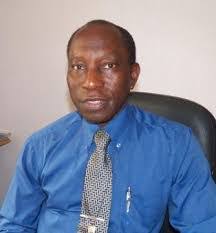
Chris Aligbe is the CEO of Belujane Konsult. He was a panelist at the lecture.
We need to drive the maritime and aviation sector with modern technology. There is the need to inter-modalize the sector and making them work together. We cannot over flog this issue because that is the global trend. Whenever I want to travel, I can stay in Nigeria and book my flight online. I don’t need to go the airports. I book my road movement and from here, I key into the bus service in the United Kingdom (UK) to take me from UK to London, Birmingham or Manchester. I do all my bookings here and when I board my flight, I have no problems about how I get off to where I am going to. We can’t do that here in Nigeria because you are not even sure of your flight. Uber and Taixfy are here but you are not sure of the place you are going to.
There is no synergy; there is so much territorialism within the industry. Everybody wants to have a territory within the industry. The industry will never move forward unless we come to the point where we agree that the industry is our own and we must work together. United we stand, divided we fall. If we are united, the industry will be able to move out to reach other subsectors like the maritime, aviation, railway and road transport. Unless we intermodalize, we will not get anywhere in our country.
We should also talk about who will be at the commanding height of the industry. Is it the public sector or the private sector? We will never have the kind of fund s we need to build modern ports as government from the public sector. There is so much demand for the government and so we have to bring in the private sector to stay at the commanding height of that industry. In the road transport, the government is not involved, it’s the private sector. All that they need is to be able to organize them and put them in a proper perspective so that they can key into the policies that will come in to drive the entire transportation sector. We should avoid people that will pull down the industry.



